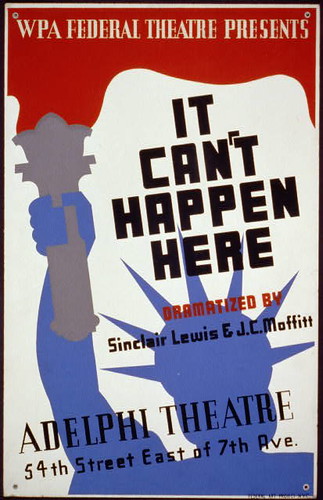 There’s a lot going on in the world. Scrolling through my Twitter stream lets me skim across the top of it, dipping in here and there, saving an article, but mostly skimming. It’s oddly comforting, when things seem to be falling apart, to skim the surface.
There’s a lot going on in the world. Scrolling through my Twitter stream lets me skim across the top of it, dipping in here and there, saving an article, but mostly skimming. It’s oddly comforting, when things seem to be falling apart, to skim the surface.
But a tweet from a provocateur I don’t follow keeps coming up as people who I do follow throw up their Twitter hands (wings?) in frustration. A Library Leader thinks we should should embrace the gig economy, stop hiring full time library workers, and let a thousand gig jobs bloom. Because if you have a lot of gig jobs, you can be your own boss and make lots of dough if you hustle enough! Also, you will free yourself from the tyranny of the stable job and its “lack of flexibility.” Wake up, sheeple! It’s what those youngsters want! “The future workforce has less appetite for monotony as their grandparents.”
No kidding! Life is so not boring when you have a pile of school debt, no home you can afford, a looming climate catastrophe, and the thrill of not knowing what tomorrow will hold! A job? Three jobs? A fantastically exciting puzzle of what to do for child care when you have no idea what your schedule will be tomorrow? So flexible! But that absurdity isn’t what made me pause long enough to try and put my thoughts into words. It was the word “monotony.”
 I submitted this piece to the Minneapolis
I submitted this piece to the Minneapolis  Supporting intellectual freedom is a bedrock principle for libraries, yet it carries with it a host of issues. Public libraries deal with challenges to books, displays, and programs constantly. They have policies and procedures in place to smooth the path, yet it’s not always a simple matter. For two years in a row,
Supporting intellectual freedom is a bedrock principle for libraries, yet it carries with it a host of issues. Public libraries deal with challenges to books, displays, and programs constantly. They have policies and procedures in place to smooth the path, yet it’s not always a simple matter. For two years in a row, 
 To continue
To continue  This coda to
This coda to  When I made an informal survey of academic library mission statements a few years ago, access and service were the two values most commonly mentioned. Now that we’re practically drowning in information, why is access still so commonly named as a library’s primary purpose?
When I made an informal survey of academic library mission statements a few years ago, access and service were the two values most commonly mentioned. Now that we’re practically drowning in information, why is access still so commonly named as a library’s primary purpose? I gave
I gave 
 Reposted from
Reposted from